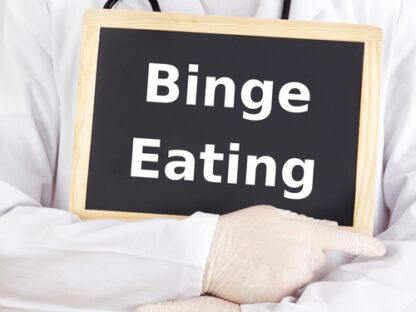How to Help Someone Who Has an Eating Disorder
Watching and worrying about a loved one—whether a family member, friend, or partner—dealing with an eating disorder can be deeply uncomfortable and frightening. Seeing someone you love suffer from discomfort and ill health without being able to stop themselves can be heartbreaking. However, with genuine, compassionate eating disorder support, there is always a path back toward health and stability.
Compassionate and Non-Judgmental Support
As with any disorder, the most important thing you can do to help someone facing the physical and mental challenges of an eating disorder is simply to be there for them—to offer compassionate, non-judgmental support when they need someone to talk to or share their emotions with. Providing consistent eating disorder recovery support creates a safe space for healing.
Encourage Healthy Habits and Recovery Plans
Another essential way to support someone with an eating disorder is to remain a consistent partner throughout the entire recovery process. Respectfully encourage healthier eating habits in casual, non-judgmental ways during food-related situations. If they have started following a meal plan and therapeutic schedule, encourage them to stick to those plans and remind them that their efforts toward recovery are noticed and appreciated. This type of compassionate eating disorder support can significantly boost their motivation.

The Power of Partner Support in Eating Disorder Recovery
In a New York Times article by Abby Ellin, she discussed the impact of partner support during eating disorder recovery, highlighting conclusive findings from experts. “In 2006, Dr. Bulik and Donald H. Baucom, a professor of psychology at the University of North Carolina, Chapel Hill, enlisted partners in the treatment process during a study of 20 couples, one of whom had anorexia. The results showed encouraging improvements in weight gain, along with reduced anxiety and depression, and a lower dropout rate—a common challenge when treating eating disorders. ‘That’s really a significant outcome because, in other treatments, up to 50 percent of people leave outpatient treatment,’ said Dr. Bulik. ‘We can’t treat people if they don’t come to the office.’”
This evidence underscores the importance of providing compassionate eating disorder support throughout the recovery journey.
Encourage Professional Eating Disorder Treatment Options
Another vital, potentially life-saving step is recommending professional assistance. Encourage your loved one to seek therapeutic and meal support programs. For example, Intent Clinical offers expert consultation, companionship, and meal support designed to guide individuals toward eating disorder recovery. Supporting a loved one in taking these steps can lead to a much healthier and happier recovery journey.
Show Consistent Support and Compassion
Ultimately, the best way to help someone struggling with an eating disorder is to ensure they know they’re not alone—that they have genuine love and support throughout their journey and beyond. With that reassurance, the drive and determination for true recovery become much stronger, and the fulfillment of knowing others appreciate their progress can make the path to stability even more rewarding.
Help a Loved One Today
To learn more about eating disorder expertise or to schedule a consultation to take the next step for you or a loved one, contact us today at 617-910-3940 or fill out a contact form here.

